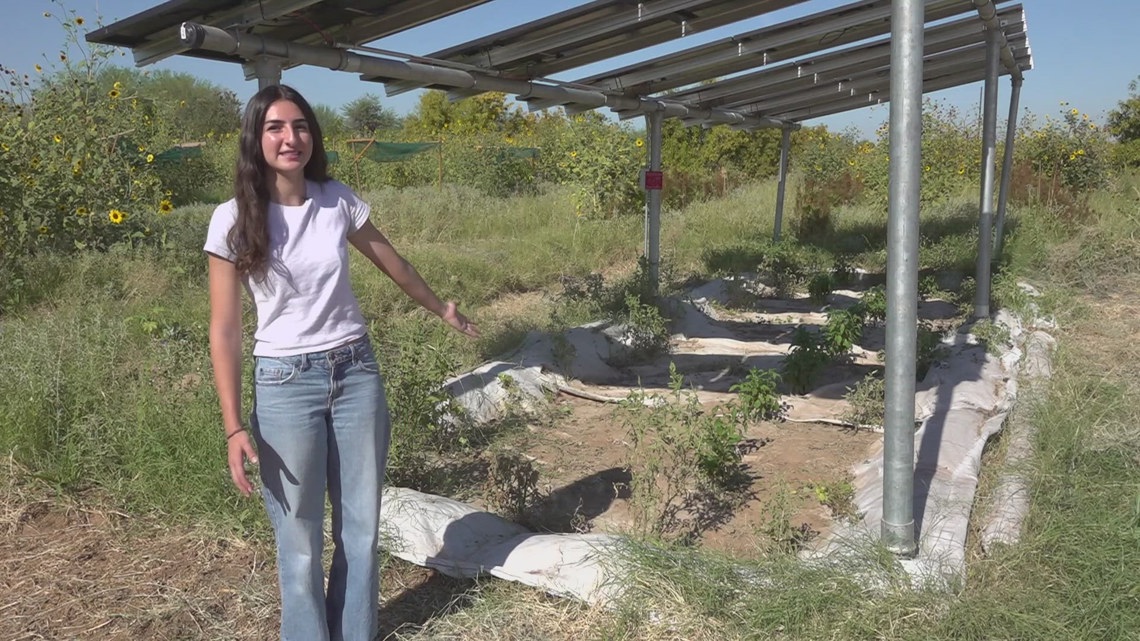Phoenix student Sarah Bendok receives national recognition for improving farm efficiency with agrivoltaics.
PHOENIX — A 17-year-old Phoenix student is gaining national recognition for her work helping Arizona farms become more efficient through a method known as agrivoltaics, which combines agriculture with solar energy.
Sarah Bendok, a senior at Phoenix Country Day School, is the founder of the nonprofit Growing Green. Her organization helps schools, farms and community gardens install agrivoltaic systems — solar panels built above crops that provide shade and renewable power.
“It reduces their electric bill by 40 percent every year,” Bendok said.
The system has been in place at Spaces of Opportunity, a community garden in south Phoenix, since January 2024. Operators there say the results are clear. Jalapeño crops grown under the panels produced yields 4.5 times higher compared to crops without shade.
“We have noticed, especially with vegetable production, a huge difference,” said Sowan Thai, manager of operations and programs at Spaces of Opportunity. “Particularly in the summer between crops that are under the agrivoltaics and the ones that are not.”
The project helped Spaces of Opportunity earn the North American Agrivoltaics Award for Solar Farm of the Year. Bendok’s efforts have also earned her a spot on Junior Achievement of Arizona’s prestigious 18 Under 18 list.
“Students like Sarah are representative of that future hope,” said Anne Landers, chief operating officer of Junior Achievement of Arizona.
Bendok said her work is not only about increasing crop production but also about inspiring others to adopt sustainable practices.
“It wasn’t just about implementing these systems,” she said. “It’s also about teaching the community and showing youth what they can do to make a difference and exposing them to more STEM opportunities.”
Agrivoltaics has only been in use in the United States for the past decade. The University of Arizona has a pilot program collecting long-term data, and Bendok said she has spoken with the Environmental Protection Agency about creating a blueprint that could help schools and farms nationwide adopt similar systems.
For now, her focus remains on expanding the technology across the Valley — one solar panel, and one harvest, at a time.
>> Download the 12News app for the latest local breaking news straight to your phone.
